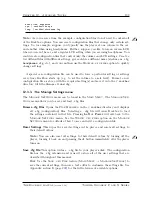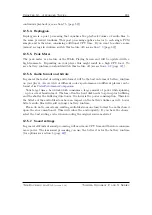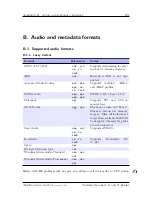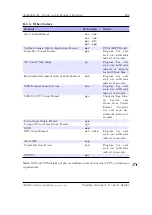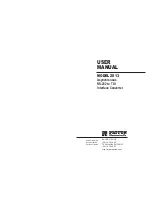
Chapter 12. Advanced Topics
193
Viewport Declaration Syntax
%V(x,y,[width],[height],[font]) %Vf([fgcolour]) %Vb([bgcolour]) %Vg(start,
end [,text])
•
%Vf and %Vb set the foreground and background colours respectively.
•
‘fgcolour’ and ‘bgcolour’ are 6-digit RGB888 colours, e.g. FF00FF.
•
%Vg defines a gradient fill that can then be used with the %Vs tag. ‘start’ and
‘end’ set the initial and final colours, and the optional ‘text’ sets the text colour.
Colours are 6-digit RGB888, e.g. FF00FF.
•
‘font’ is a number: 0 is the built-in system font, 1 is the current menu font, and
2-9 are additional skin loaded fonts (see section
(page
•
Only the coordinates
have
to be specified. Leaving the other definitions blank will
set them to their default values.
Note:
The correct number of commas with hyphens in blank fields are still needed.
b
Example
%V(12,20,-,-,1) %Vf(000000) %Vb(FFFFFF) %Vg(FFC0CB, FF0000, FFFF00)
%sThis viewport is displayed permanently. It starts 12px from the left and
%s20px from the top of the screen, and fills the rest of the screen from
%sthat point. The lines will scroll if this text does not fit in the viewport.
%sThe user font is used, and the foreground and background are set to black
%sand white respectively. The line gradient is set to pink to red with yellow
%text.
Viewport definition
Default value
width/height
remaining part of screen
font
user defined
foreground/background
colours
defined by theme
Viewport Line Text Styles
Tag
Description
%Vs(mode[,param])
Set the viewport text style to ‘mode’ from this point forward
Mode can be the following:
The Rockbox manual
(version 3.14)
Toshiba Gigabeat F and X Series





















